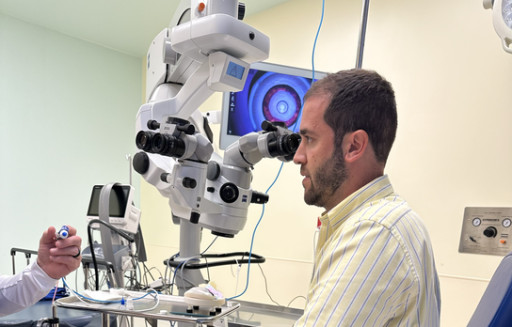All Categories
Featured
Table of Contents

Routine eye evaluations are necessary for maintaining good vision and finding prospective eye health and wellness concerns early. The regularity of these exams can vary dramatically based on a person's age, lifestyle, and total wellness. Recognizing the advised timetable for eye examinations can assist guarantee that people of every ages get suitable care and tracking for their eye health and wellness.
Newborns and Toddlers (0-2 Years)
For babies and toddlers, eye exams are critical for discovering any type of possible vision problems early on. The American Academy of Ophthalmology suggests that a youngster's initial eye exam need to occur at around 6 months of age. Throughout this initial browse through, the eye treatment professional will analyze the youngster's visual advancement and look for any kind of noticeable eye problems.Following this first examination, it is suggested that youngsters have an additional eye exam at age 3. This check out will concentrate on examining the youngster's total visual function, consisting of eye alignment and the ability to track things. If no issues are identified, the next test ought to be scheduled before the youngster starts institution, generally around age 5 or 6.
School-Aged Youngsters (6-18 Years)
Once kids reach college age, routine eye examinations need to be arranged every one to two years. Vision is critical for discovering and advancement, and several institutions perform vision screenings. These testings do not replace a detailed eye test by an eye care expert.For kids associated with sports or activities needing substantial visual emphasis, yearly eye tests might be suggested. Furthermore, if a kid displays indicators of vision issues-- such as difficulty checking out, scrunching up your eyes, or frequent headaches-- a visit to the eye doctor need to be scheduled as quickly as feasible.
Young Grownups (19-39 Years)
Young grownups typically have fewer vision adjustments than older age, yet normal eye exams continue to be important. The general referral is to set up an eye test every two years during this duration. Nonetheless, individuals with details threat aspects-- such as a family members background of eye condition, diabetic issues, or those who use contact lenses-- ought to take into consideration annual eye examinations.Furthermore, those that spend considerable time on electronic devices might experience electronic eye pressure. If signs such as dry skin, exhaustion, or obscured vision occur, it may be a good idea to see an eye care specialist faster.
Adults (40-64 Years)
Grownups aged 40 to 64 must schedule eye examinations every one to two years. Eye exams can also aid discover other common age-related conditions such as glaucoma, cataracts, and macular deterioration.If individuals in this age have threat variables like hypertension or diabetes mellitus, they may call for even more frequent exams to monitor their eye wellness closely.
Seniors (65 Years and Older)
For elders, regular eye exams end up being even more critical. The American Optometric Association advises that people matured 65 and older have an eye examination a minimum of annually. Older adults go to a higher danger for numerous eye conditions, consisting of cataracts, glaucoma, and age-related macular degeneration. Early detection and treatment of these problems can prevent vision loss and improve the lifestyle.Final thought.
Understanding the ideal schedule for eye tests based on age is important for maintaining optimum eye health throughout life. From babies to elders, normal eye examinations play an essential role in finding concerns early and ensuring that vision stays sharp. By sticking to these standards and seeking advice from an eye care specialist, individuals can take proactive steps toward maintaining their vision and total health and wellness. Whether it's a kid's initial check out or an elderly's yearly exam, prioritizing eye care is an investment in long-lasting wellness.Table of Contents
Latest Posts
Experience the Boogaloo: Eating, Drinks, & Sports at FunCity Resort
Published Feb 04, 25
2 min read
Discover Leisure at the Claridge Indoor Swimming Pool
Published Feb 04, 25
1 min read
Why Commercial Properties Choose Ornamental Iron Fencing
Published Feb 04, 25
2 min read
More
Latest Posts
Experience the Boogaloo: Eating, Drinks, & Sports at FunCity Resort
Published Feb 04, 25
2 min read
Discover Leisure at the Claridge Indoor Swimming Pool
Published Feb 04, 25
1 min read
Why Commercial Properties Choose Ornamental Iron Fencing
Published Feb 04, 25
2 min read